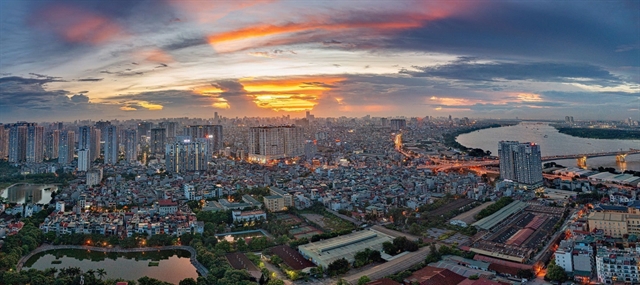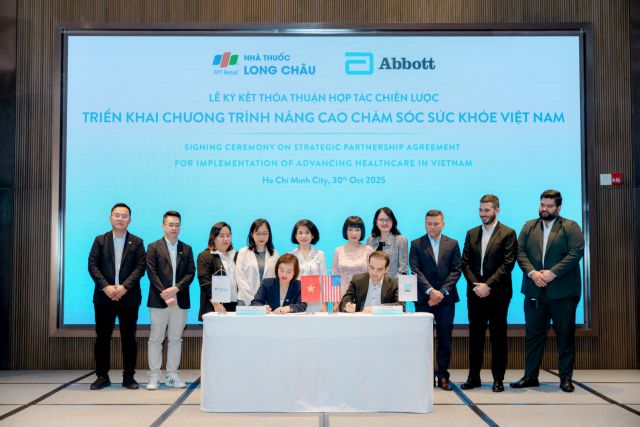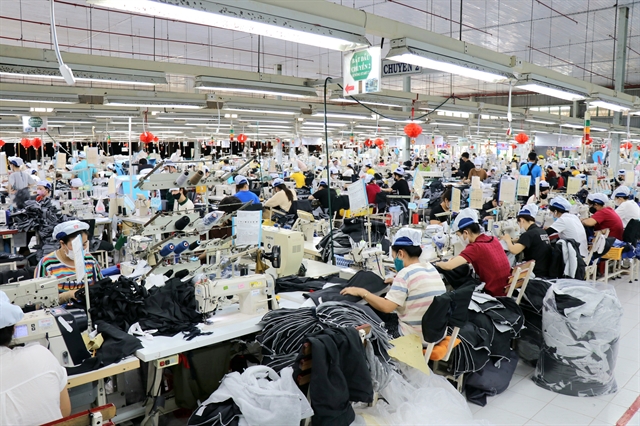 Economy
Economy

The future of the Trans-Pacific Partnership Agreement (TPP) is in doubt after Donald Trump won the US presidency. Dr. Trần Toàn Thắng, deputy director of Business Environment and Competitiveness Department of Central Institute for Econommic Management (CIEM), spoke to Việt Nam News reporter Hoàng Như Hoa about the ramifications of the TPP being cancelled or renegotiated.
 |
| Dr. Trần Toàn Thắng. |
The future of the Trans-Pacific Partnership Agreement (TPP) is in doubt after Donald Trump won the US presidency. Dr. Trần Toàn Thắng, deputy director of Business Environment and Competitiveness Department of Central Institute for Econommic Management (CIEM), spoke to Viet Nam News reporter Hoàng Như Hoa about the ramifications of the TPP being cancelled or renegotiated.
Where does the Trans-Pacific Partnership (TPP) stand, under newly-elected US president Donald Trump?
It is inevitable that the TPP will be impacted. During their campaigns, in order to lure votes, both Trump and Hillary opposed the deal, showing that issues relating to the deal are of real concern to Americans.
Now, with Trump’s victory, the future of TPP is far more uncertain. He had made clear his tough stance on TPP and trade deals during his campaign. So the worst case scenario is dissolution, and the less worse scenario is renegotiation.
Which of these scenarios has a more realistic chance of happening depends on the balancing of geo-political and economic interests between the United States and other TPP members.
Many projections for TPP show that the deal won’t benefit the US economy much, and will hurt employment in key industries.
It can be seen that the TPP would help the US import cheaper goods and bring more opportunities for American firms in Asia. However, the impact on investment will not be significant, people have said.
On the geo-political aspect, a warmer relationship between the US and Russia comes into the picture, so what is the future of ties between the US and China? The TPP was seen as a tool for the US to set the rules of the game in Asia to counter China’s ascendance.
Trump has a relatively tough stand on China, even though he has stressed less involvement in issues outside the US. This can be expected to reduce conflict between US and China on freedom of navigation as well as sovereignty of islands and seas. The conflicts would mostly relate to bilateral relations between US and China. On the other hand, other TPP member countries may shift their focus to negotiating the Regional Comprehensive Economic Partnership (involving China).
Therefore, it can be seen that the dissolution of TPP would not be a great loss for the US if president-elect Trump sticks to the strategy of focusing on internal issues. The employment benefit, in my opinion, would not be much, but it would positively influence public opinion.
The impact that can be foreseen is that the Americans would miss the opportunity to benefit from cheaper Asian goods. Furthermore, it (dissolution of TPP) would certainly impact the US’s international image. America would be seen as a less-trustworthy nation without a stable foreign policy.
In this context, it can be said that the scenario of renegotiating the TPP is more realistic than its elimination.
In the worst case scenario, if the TPP is finished, how would it affect the Vietnamese economy as well as trade relations between the two countries?
Việt Nam is considered one of the countries that would benefit most from the TPP agreement. But it should be noted that such assessments are based on simulation models that make many assumptions. Since the TPP negotiations concluded in October last year, many articles have been written about the opportunities and challenges that the deal presents for Việt Nam. The opportunities are conditional (i.e. it would depend on institutional reforms, improved competitiveness, and so on), and challenges are visible (i.e., exports mainly via FDI, slowly improving export product quality, low capacity to respond to trade shocks, slow absorption of FDI capital).
Many people have said that TPP is a good chance for Việt Nam to boost local reform and restructuring. However, I think that direct impact of legal reforms involving state-owned enterprises, labour, investment would not have been significant. If any, the impacts were going to be indirect.
Even if TPP were to die, its abolishment would stimulate the RCEP. The impact of RCEP and the EU-Việt Nam FTA on the Vietnamese economy will be significant.
If the US market is going to be difficult, what are the measures that Vietnamese enterprises should take, to find another direction?
In fact, it will not be too difficult. It’s just an issue of Việt Nam loosing some opportunities in the US market. Exports to the US may increase at a slower rate, because other trade deals would be reconsidered if Trump turns to be protectionist.
Việt Nam has been diversifying its export markets through other trade deals. FTAs with other countries (Israel, Hongkong, RCEP) are on the anvil. The integration strategy that Việt Nam worked out early this year shows the Government is taking appropriated steps.
The important thing is that Việt Nam needs to enhance its restructuring process and improve its business environment fundamentally to boost local production. The rate of enterprises benefiting from FTAs is relatively low at 38 per cent. So Việt Nam needs to take greater advantage of agreements already signed.
Do you think that US enterprises will follow protectionist policies, return to the country, limit trade with foreign countries?
I personally don’t think so. The trade trend now is production line and value chain. Thus, placing orders outside the US borders would still be the optimal choice for American firms. However, it should be noted that salaries are increasing in Asia; they are still low, but on the rise. So that advantage is decreasing.
Japan’s lower house of parliament on November 10 passed the contentious TPP just one day after Trump won the election. This week, Japanese officials are set to visit the US. What do you think about this move?
For the TPP to be approved, at least six countries having an accumulated GDP of at least 85 per cent of the total GDP of 12 countries should ratify it. At present, the US accounts for nearly 62 per cent and Japan, 17 per cent. So the US and Japan play an important role in the TPP’s fate. The fact that Japan passed the deal proves that it wants to put pressure on public opinion and the upcoming US administration to ratify the deal.
In my opinion, the pressure that Japan created will not be very significant on the US. The US’s concern is more global, having to do with its world image and its trade and investment interests. So, even if the US makes a positive move towards TPP, it would not be because of the pressure from Japan. — VNS




